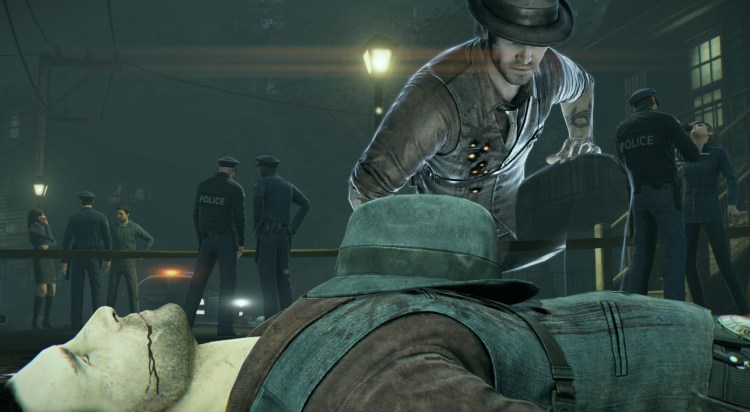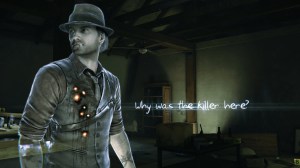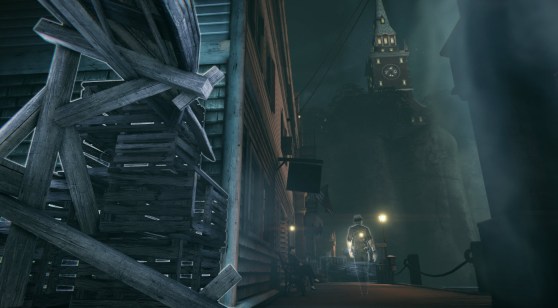GamesBeat: Without as much combat, though, did it become a challenge making the game more interactive?
Brunner: It was more about the pacing of the experience. You need to have moments that hit a peak of adrenaline engagement. It was flat without that. It needed to have those elements.
GamesBeat: Was there any feedback from showing it at E3 for the first time that influenced your direction?
Brunner: E3 was a positive experience. That always makes me nervous, because I’d sort of like to hear the bad stuff early. You want to be able to fix things in time if you can. One of the things that we sat back on our heels with from E3 was, how could we make investigation more engaging for the player to think through? As opposed to just handing it all to them on a silver platter. There’s a funny balance to finding that.
We made an untold number of changes to the smallest of things, which actually have a big impact. Like, what exactly is the item you find that gives you the right clue? What is it that helps you to understand why that’s a clue and why the other things around it aren’t? How many of those should we have in this section? We didn’t want to make just finding clues the challenge of the game so much as what you do with them after you’ve found them.
GamesBeat: There were definitely more heavily promoted games at E3. It’s a game that you have to play in order to appreciate. You’re not necessarily going to understand it from a distance.
Brunner: It’s something you need to sink into. I appreciated people’s understanding that this was not just an attempt to make an experience you’ve seen before. E3 is one experience after the other that you’ve seen.
GamesBeat: Narrative experiences, stories, seem to have come back with a vengeance in the past year. We’ve had The Last of Us, BioShock Infinite. Watch Dogs is coming out.
Brunner: You know, I don’t know if that’s true. I keep being told that narrative games are dead, that nobody’s ever going to play them anymore. We can’t go into reruns.
GamesBeat: Do you think there’s an example for you to follow, in some ways? From other kinds of media, or other games that might have done this well?
Brunner: We looked at a lot of investigation games. We’d already played a lot of them. One of the reasons we got excited about this, though, is that there wasn’t much of a template for it. We both had the responsibility to develop what this template could be and own that space. That was one of the core reasons we were attracted to it at the very beginning. Even though there are elements that we looked at in many games as far as interactivity, I would say that for the most part, it was a process of having to invent it from scratch.
VentureBeat's mission is to be a digital town square for technical decision-makers to gain knowledge about transformative enterprise technology and transact. Learn More





![Reblog this post [with Zemanta]](http://img.zemanta.com/reblog_e.png?x-id=efa693bf-27db-46a7-a3db-896fddb6a72b)
